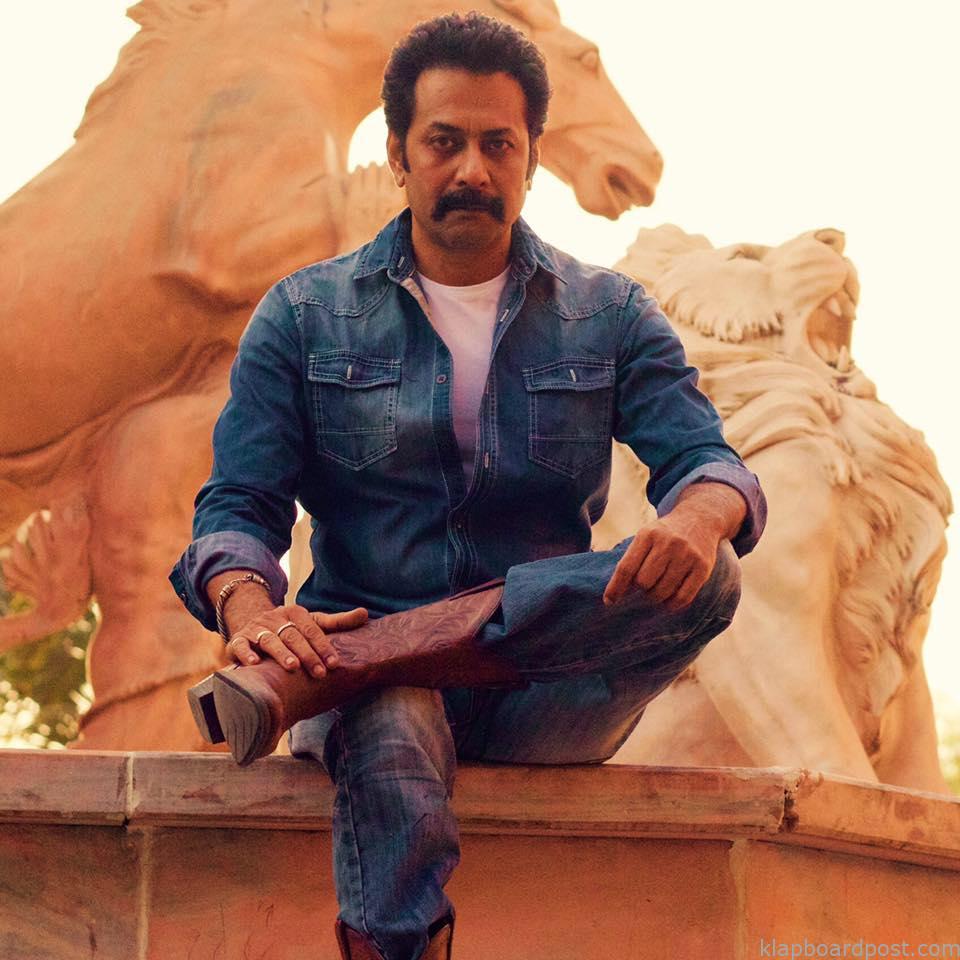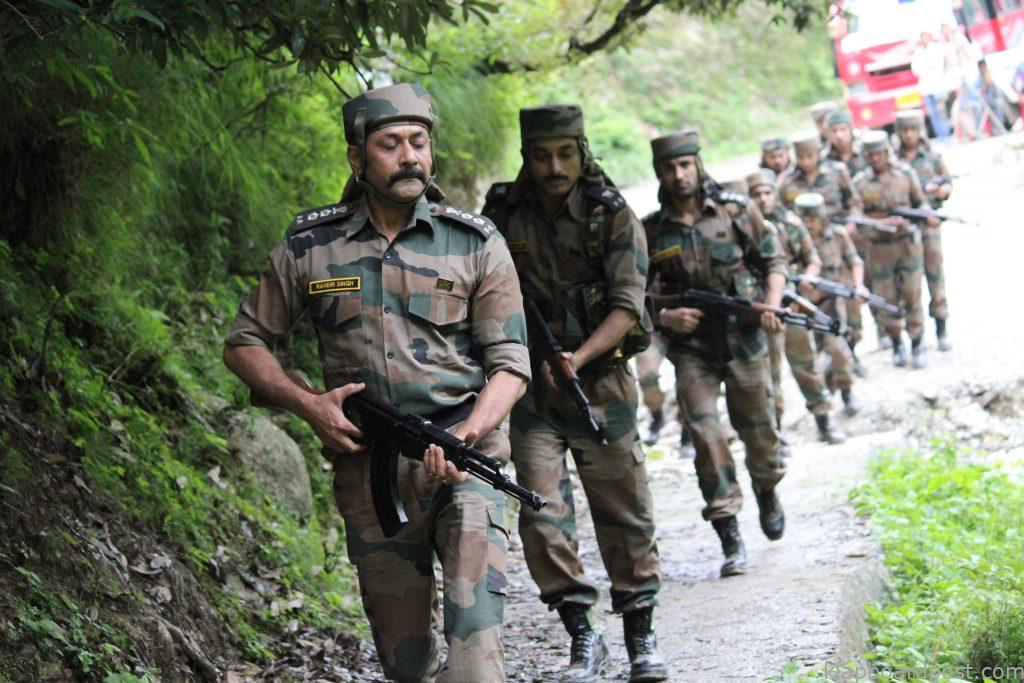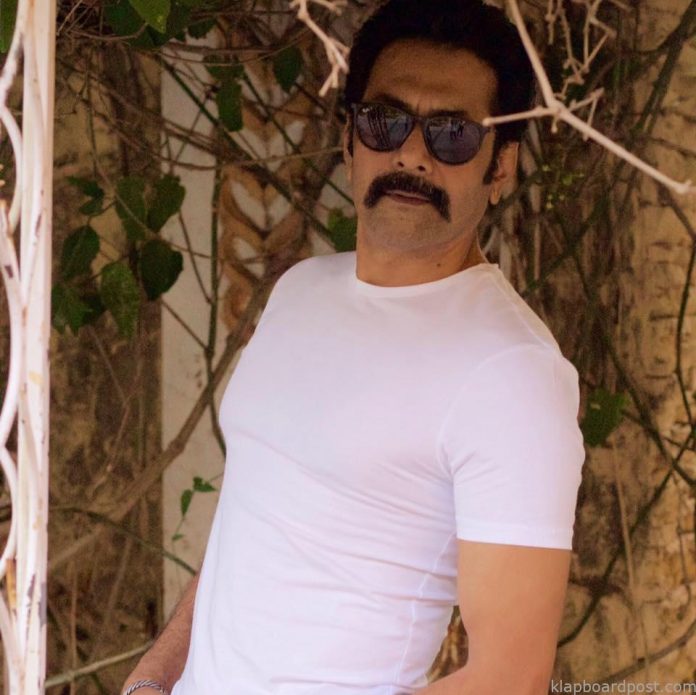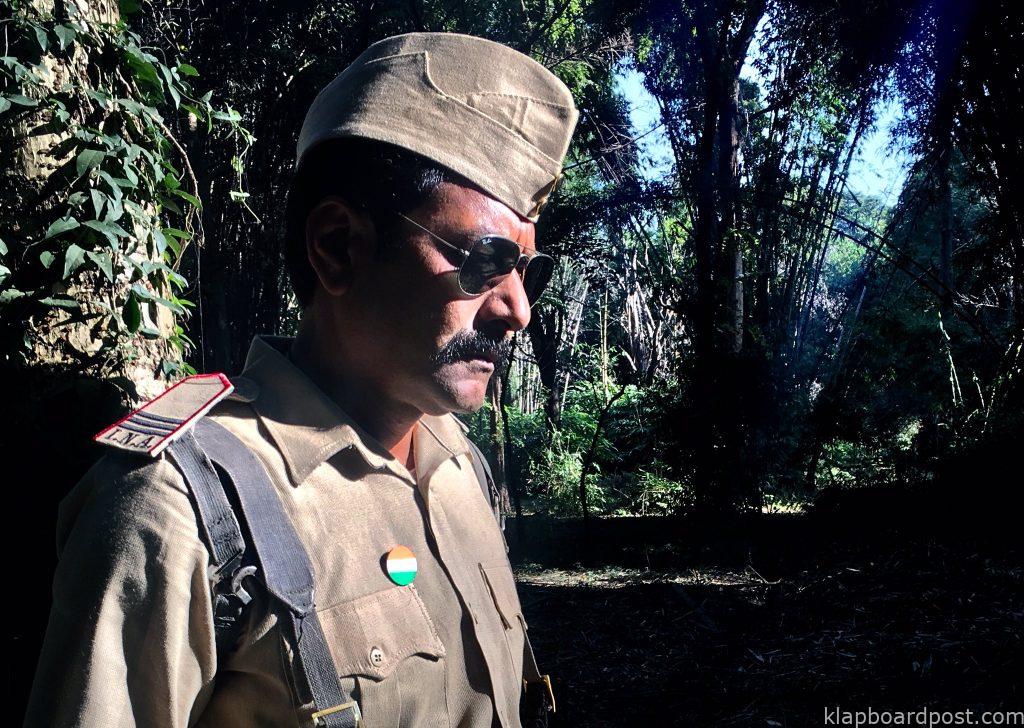Srivathsan Nadadhur
Popular character actor, producer Deepraj Rana doesn’t mince words while he talks; his deep voice with a firm baritone unquestionably adds more authority to his words. His arresting screen presence, eyes that scream intensity make him an obvious choice to play parts that are full of malice. Off-screen though, there’s no trace of any drama or shadiness. He doesn’t throw his weight around and makes no bones about telling what’s wrong with his profession and what isn’t.
As a character actor, screen time is the least among his worries and he cares to invest his energies in creating a strong impact and listening to his director’s words. Television and films have been equally instrumental to his growth as an actor. Udaan, Chanakya, Chandrakanta, The Sword of Tipu Sultan cemented his stature on television, while a flurry of hit films like Singham Returns, Gunday, Prem Ratan Dhan Payo, Special 26 and the very recent Dabanng 3 have given a good push to a career spanning three decades. Klapboardpost.com, in conversation with the actor, tries to understand what went into building a long-lasting stint in the show business.

If there was one attribute that helped you tide over the trials and tribulations of surviving in the industry, what would it be and why?
Patience is the key to survival in the entertainment industry. It takes 30 years to understand what the word means. I was never running the rat race and didn’t have any problem being labelled a character actor, regardless of the screen-time offered to me or the scale of the film. I never wanted to be the quintessential hero. I was 8 when I first dreamt of being an actor and here I am continuing to fulfil my dream, being directed by the likes Sooraj Barjatya, Tigmanshu Dhulia, sharing screen space alongside Salman Khan, Ajay Devgn, acting in serials, films and being hungry for more.
Do you believe that the entertainment industry has significantly changed over these years?
Industries change every 20 years. We live in a land where even languages change every 100 km. Cinema was broadly divided into two categories before; the typical massy stuff that’s often branded as commercial cinema besides the new-wave cinema helmed by names like Shyam Benegal, Govind Nihalani. Formula fare ruled the roost and the scope for entertainment was wider, from an Andaaz Apna Apna to the films Govinda had starred in. Films have changed because we don’t tell stories catering to one region anymore, you have the world waiting to watch whatever you make, doesn’t matter if it’s an Iranian, English or a French film.
Young filmmakers of this generation are exposed to world cinema like never before and no wonder you see a constant effort to break patterns and norms. It has brought in more subtlety to our films that are noticeably rooted in reality now. Hindi film industry has always produced actors who had a stylised approach to acting back then, be it Keshto Mukherjee or Rajesh Khanna or Dev Anand or Pran. When you see a Nawazuddin Siddiqui or a Pankaj Tripathi today, you realise the realism they’ve brought to the craft. Films are slicker, have shorter duration and change, at the end of the day, is inevitable.
Many actors talk of preparedness and getting into the skin of their parts before they enter a set. What is your approach to your roles, however brief they may be?
I go with the flow and don’t prepare much for the roles because in most cases, there’s not much in it to work on. The time I get my script and read my lines, I visualise my character but I don’t get into its intricacies beyond necessity. Irrespective of the efforts I make to modulate or work around my body language, the director would want me to act according to his vision of the character. You need to unlearn and forget what you’ve conceived about the role and stay true to the director’s diktats; this is a time-taking process and you can’t afford such a luxury on a set. The director would have done prior homework on my role before he gave the script to me and it’s important to prioritise his understanding over any other interpretation I have in the mind.

You played an army officer in The Hidden Strike that had released weeks ago on ShemarooMe Box Office. Say, if you are offered to play the same role in other films, how would you maintain a distinction between the portrayals? Is it entirely dependent on the director to bring about that variation?
If I play an army role, the first and the foremost thing I aim for is to look my part physically, be fit and style my hair accordingly. What’s the difference you can bring to the portrayal in the best case scenario across different films? You either work on a national mission or talk to the co-stars surrounding you in a certain fashion and whatever you do is mostly dictated by the director. This is not Hollywood where one can be a Joaquin Phoenix and spend two years preparing to play the role of Joker. There’s no such opportunity or time here; probably the lead actors in a film may get that window but that’s also rare. You spend time on rehearsals where the director briefs you on the pitch of the character and you go by his/her instructions.
Tell us a little about your experiences while shooting for The Hidden Strike…
The shoot location for The Hidden Strike was at least 5-6 km away from where we had stayed. There were hills and mountains all around us and it seemed that the road leading to the location had to also pass through a hill. This was a time in July 2019 and landslides were a frequent occurrence there, which made the situation worse. I and Vedita (Pratap Singh) while returning from work had to reverse our car; blocks of mud and trees were falling apart on the ground and there was every chance that a huge rock could topple our car.
There were not many hotels in the area and the driver had suggested we quickly walk to the other direction on foot and that he would arrange someone to pick us up from that location. We ran as fast as we could and there was every chance that we could have been blown away by the wind. We ultimately reached our rooms that night by God’s grace and the other day we woke up to the news that the same road was smashed by a huge rock that had fallen from a hill. It was a near-death experience that shook us completely. We shot the film in locations where terrorists used to pass by in the past, it would take hours for us to reach the set and the route was so dangerous but we managed it all because of our director Suzad Iqbal Khan. He was the man who truly lifted our spirits and we merely had to follow his instructions.
Does it disappoint you that character actors are given secondary importance and don’t often get similar treatment as other actors (on the set and in terms of the role too)?
When the director or producer offers you a film, they already tell you if it’s going to be a brief or a lengthy part. It’s upto the actor if he wants to do it or crib about it later. A lot of actors blatantly lie that they had a big role in the film and that their scenes got chopped at the editing table. Enjoy whatever opportunity you get and be sincere in its portrayal. If someone else judges you that you’re a small actor because of the length of your roles, the problem lies in their perception. I never worry about things beyond my control and my longevity in the industry best explains that. Just because I know Prakash Jha for many years now, should I complain that I got only one scene to do in Aarakshan or cherish the fact that I got to do that scene with Amitabh Bachchan? The choice is mine. Getting rid of ego is important for an actor or any human being. It’s something that all our scholars, sages have been suggesting for long. I am too joyous a person to get into professional jealousy, self-pity or loathe something.

You had once stated in an interview that ‘try to be a good actor, but be a better human’. What drove you to say that?
If one’s a good actor, there’s a 99.99 % chance that he/she is a good human being. If you’re not a good human being, it’s difficult to be a good actor. A good actor is a great observer. Real performances, dialogue delivery, emotions reflect on-screen when an actor notices a situation and learns from it. If one’s hurriedly taking an injured man into his car after an accident and you notice the car owner’s reaction on his face, that’s observation. A good actor can be selfish to an extent that he/she would be trying also to learn even from how their friends or others react to the loss of their loved ones.
You had lost your mother when you were in the middle of a shoot and chose to continue working instead. Where does this inner strength come from?
I was supposed to head for Russia for a television serial shoot in 2000 and just as I landed in the Moscow airport, I was informed that my mom was no more. I was playing the main lead in the show and we had international flights only once in three days. There was no chance that I could have made it to her final rites anyway. My brother completed the rites and my producers gave me an option to leave for India after three days. The serial shoot was supposed to last 10 days and I didn’t see any point in returning when I couldn’t see my mother. I opted to finish the schedule and reach home before the 13th-day ceremony. Such situations are part and parcel of everyone’s life and one needs to live with it.
From your experience, how do you differentiate between a good and a bad film?
The difference between a good film and a bad film is the script; everything else including the execution comes secondary. At the script level, you come to know of a film’s potential. A great script that’s not executed greatly, may still work. A good film should be entertaining, provide joy and offer newer insights about the clan or people on whom the director is basing the story. It’s tough to precisely differentiate between a good and bad film and you only come to know about it only gradually during the making.
How does the commercial success of a film or the lack of it affect a character actor?
If the film is a hit, everyone from the industry will see it and you’ll definitely be getting more work. It is always beneficial for a film to succeed at the box office. Sometimes the industry can surprise you; you may have a flurry of flops but your work may be noticed and you’ll still get opportunities. For instance, Sooraj Barjatya liked me in Saheb Biwi Aur Gangster and went onto cast me in Prem Ratan Dhan Payo. Saheb Biwi Aur Gangster wasn’t a major commercial success but Sooraj Barjatya felt I would be apt to play a role for his film which ultimately went onto be a blockbuster. Destiny takes its course sometimes and there is no formula in the film industry. Fridays tell you if a film has worked or not.

Does it help that you have a life partner who also belongs to the same profession as you?
It’s not a fixed rule that someone from the entertainment industry would always understand you well. If your wife belongs to the same profession, there’s a better chance that she’ll not have an issue with the erratic schedules on film sets. Regardless of the profession the partner belongs to, it boils down to understanding. My wife, Natasha, is an actress and her understanding has certainly played an important part in my journey.
What made you turn a producer (with Machli Jal Ki Rani Hai)?
As a character actor, you can’t expect offers to land on your lap one after the other immediately and there are gaps between films. You can take time out to relax during those phases, meet people or get frustrated about not finding work or even do something constructive. Every actor goes through this phase and I’m going through that even now. I thought film production would be a satisfying experience during one such phase. The process of finding a story that excites you and giving it to a director who’s capable of executing the project, finding the actors is an enjoyable experience because you learn something and it’ll add a new dimension to your career.
Your thoughts about direct-to-digital releases in the middle of a pandemic?
Theatres or the digital medium, we are ultimately selling the same product. We are in the cusp of change; without the pandemic, such an avenue may not have ever materialised. Everyone’s restricted to their houses and seek entertainment in a different form. These are times when universities offer a degree to students while completing the courses virtually. Change is the only constant in nature and we need to humbly accept that.












